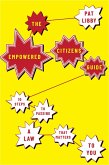The social work profession calls on its members to strive for social justice. It asks aspiring and practicing social workers to advocate for political change and take part in political action on behalf of marginalized people and groups. Yet this macro goal is often left on the back burner as the day-to-day struggles of working directly with clients take precedence. And while most social workers have firsthand knowledge of how public policy neglects or outright harms society's most vulnerable, too few have training in the political processes that created these policies.
This book is a concise, accessible guide to help social workers understand how politics and policy making really work-and what they can do to help their clients and their communities. Helping readers develop sustainable strategies at the micro-, meso-, and macro-levels, this book is a hands-on manual to contemporary American politics, showing social workers and social work students how to engage in effective activism. Stephen Pimpare, a political scientist with extensive experience as a social work practitioner and instructor, offers informed, practical grounding in the mechanics of policy making and the tools that activists and outsiders can use to take on an entrenched system. He distills key research and insights from political science and related disciplines into a practical resource for social work students, instructors, and practitioners looking to deepen their policy knowledge and capacity to achieve change.
This book is a concise, accessible guide to help social workers understand how politics and policy making really work-and what they can do to help their clients and their communities. Helping readers develop sustainable strategies at the micro-, meso-, and macro-levels, this book is a hands-on manual to contemporary American politics, showing social workers and social work students how to engage in effective activism. Stephen Pimpare, a political scientist with extensive experience as a social work practitioner and instructor, offers informed, practical grounding in the mechanics of policy making and the tools that activists and outsiders can use to take on an entrenched system. He distills key research and insights from political science and related disciplines into a practical resource for social work students, instructors, and practitioners looking to deepen their policy knowledge and capacity to achieve change.
Dieser Download kann aus rechtlichen Gründen nur mit Rechnungsadresse in A, D ausgeliefert werden.









